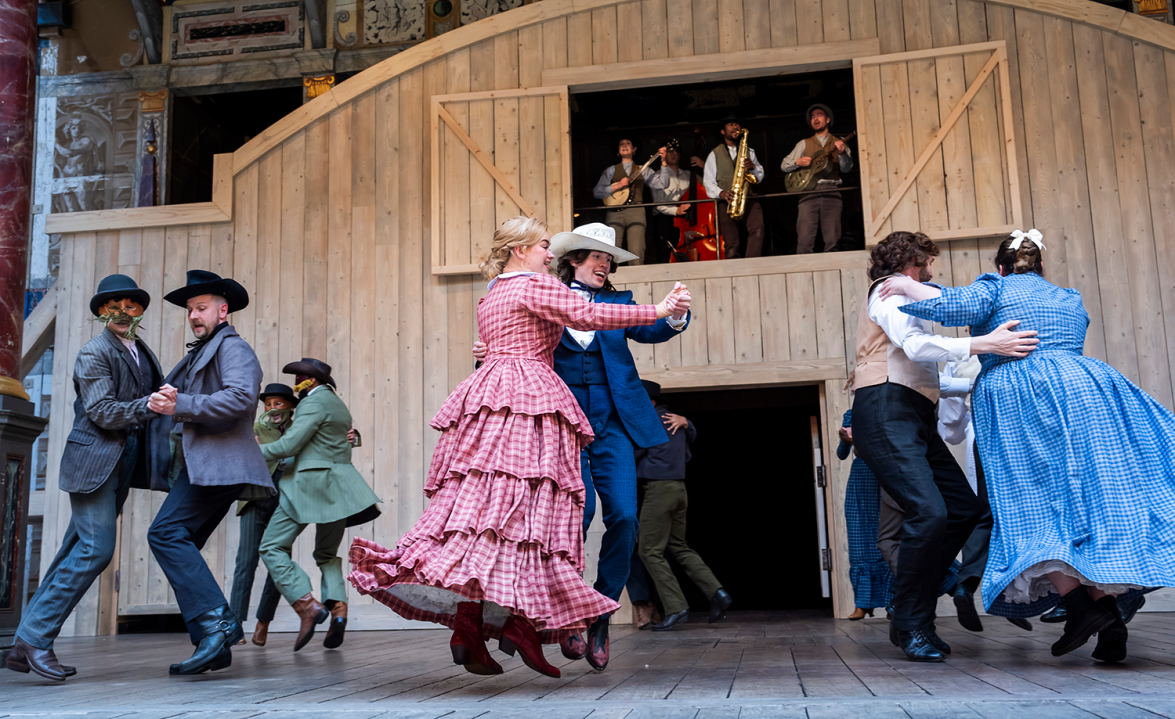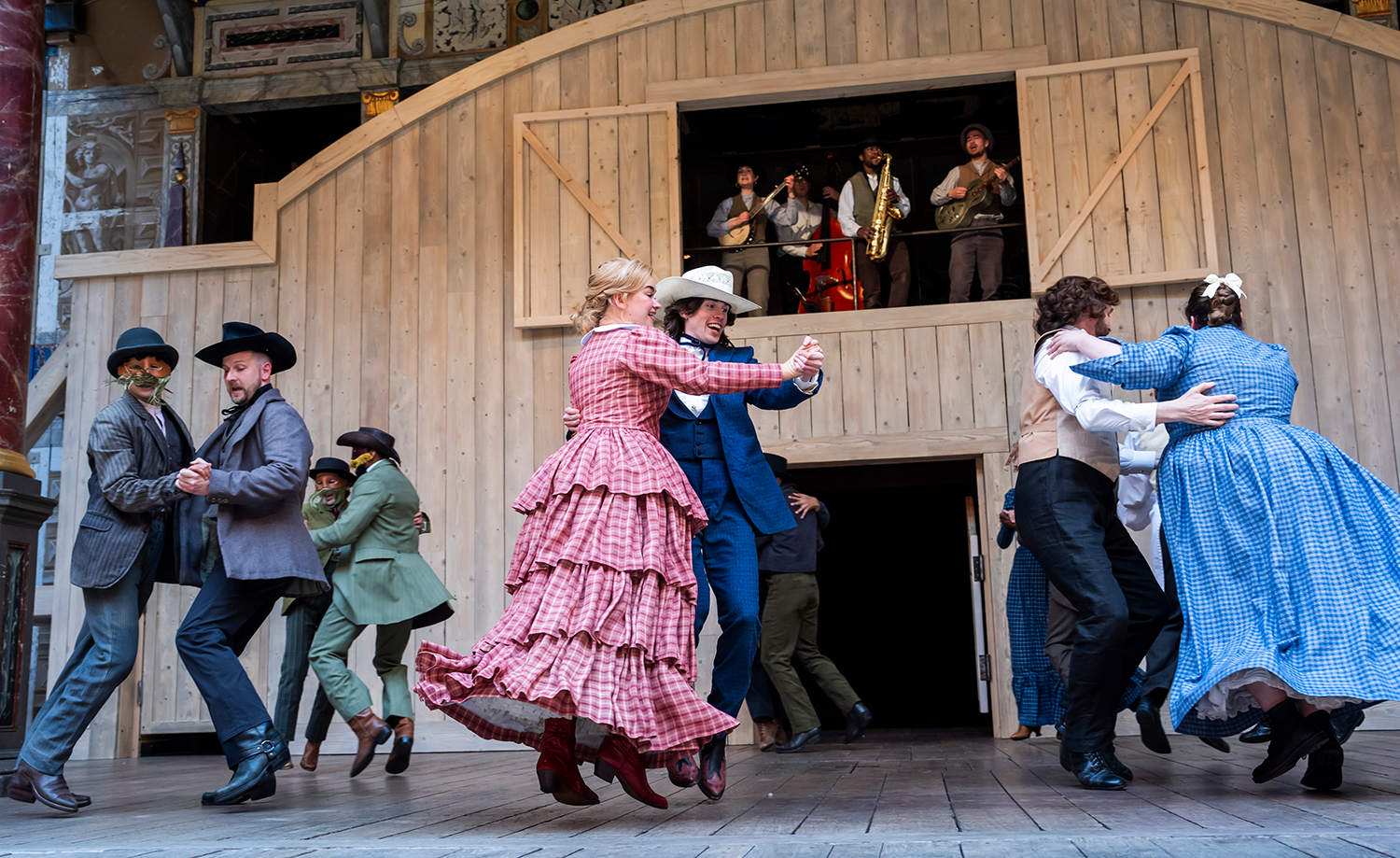
Cul-de-Sac feels like an ersatz sitcom of a kind that’s increasingly common on the fringe. Audiences are eager to see an unpretentious domestic comedy set in a kitchen or a sitting-room where the characters gossip, argue, fall in love, break up and so on. TV broadcasters can’t produce this sort of vernacular entertainment and they treat audiences as atomised members of racial ghettos or social tribes. And they assume that every viewer is an irascible brat who can’t bear to hear uncensored language without having a tantrum. The result is that TV comedy often feels like appeasement rather than entertainment.
Theatre producers are keen to fill the gap, and the latest effort by writer-director David Shopland declares its ambitions in its title. Cul-de-Sac is set on a housing estate where Frank and Ruth are busy destroying their marriage. Ruth lounges on the sofa all day drinking sherry and mourning the loss of her career as a therapist. Frank is a depressed salaryman who rants and raves obsessively about a mysterious Mercedes parked by his kerb. The couple make friends with a timid bisexual neighbour, Simon, whose wife has just run off with his brother. More characters arrive. Marie is a beautiful, nerdy evangelical who recruits worshippers for her husband’s church by knocking on strangers’ doors. Her latest disciple, Hamza, is a Kurdish businessman who owns the Mercedes that blocks Frank’s drive. Thus the messy social circle is complete.
The characters are quirky, likeable and easy to relate to. And the show is full of awkward comic moments and latent sexual conflict. The best character, Simon, is perhaps too obviously based on Alan Bennett. He has a squashed blond hairdo and geeky black-rimmed glasses, and he speaks in a lugubrious, wheedling Yorkshire accent.
The show is good fun for 90 minutes but after the interval, disaster strikes. The script morphs into an anguished memory play and the characters become self-pitying bores. They take it in turns to describe the most grisly moment of their lives. Ruth explains the crisis that terminated her therapy career. Marie reveals the difficult truth about her missionary work. The men recount tales of loss and bereavement caused by lethal explosions and murderous terrorist attacks. These distressing back-stories have no shape or dramatic direction and the show becomes an interminable group-therapy session.
At the climax, a suitcase is opened to reveal a blood-stained item of clothing, and the script delivers ‘messages’ about the virtues of tolerance. We’re warned not to indulge in xenophobia or to lay blame on a particular faith for the crimes of a few extremists. In other words, it feels like a TV show. Perhaps Netflix will pick it up.
At the Globe, Sean Holmes offers an ingenious new take on Romeo and Juliet. His inspiration? Set the show in the Wild West. It makes sense, just about, to plonk the story into a frontier town where two murderous families are locked in a deadly feud. The Victorian age was a time of stylish and dignified fashions so the show looks terrific. The women swish around in sumptuous full-length gowns while the men sport frockcoats, hip-hugging trousers and chic leather boots. The cowboy hats are a bit of a problem. Thesps hate wearing headgear that conceals their faces, and in this production the actors wear their hats shoved well back on their heads so that their handsome mugs can be seen at all times. Perhaps the hats could be ditched altogether.
This feels like a TV show. Perhaps Netflix will pick it up
Most of the cast are pretty good, some are exceptional. Michael Elcock’s Mercutio is a mischievous, charming street hustler who turns the tricky Queen Mab monologue into a tour de force by pretending that it’s the most hilarious joke he’s ever heard. (On the page, the speech reads like a bad dream about a spider improvised by a stoned poet.) Elcock’s playful, fleet-footed Mercutio makes Romeo seem like an angry dullard by comparison, but that’s always a risk with this play. At least Rawaed Asde (Romeo) has the dreamy good looks of a movie star. His Juliet (Lola Shalam) plays the part as a cheery Essex blonde with a heart of steel. When her father threatens to force her out of the house, he looks more scared than she does. Jamie Rose-Monk’s Nurse is too young to perform the role as a venerable lady’s maid and she plays it like Juliet’s best mate from school. Dharmesh Patel works wonders with the small role of Peter by adding balletic little hand gestures and other physical absurdities. None of his play-acting is in the script but it comes across beautifully in the festive, carefree atmosphere of the Globe.
This is an object lesson in how to reconceptualise Shakespeare. The idea of the Wild West is lightly handled and it offers witty suggestions rather than imposing ugly restrictions.









Comments